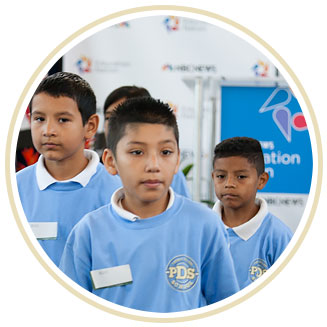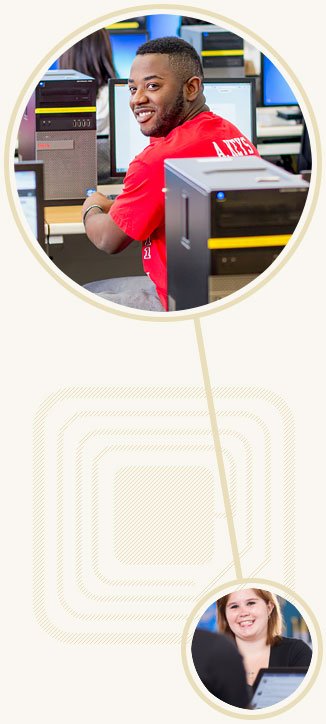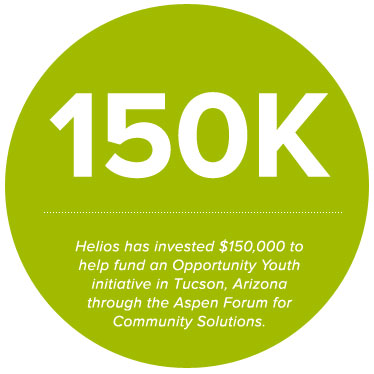Digital Learning and Innovation across Florida
Helios believes that introducing digital technologies into today’s classroom is a critical teaching and learning tool for increasing student academic preparedness and success.
The Foundation is working with SRI International through a $1 million seed investment on its Center for Digital Learning at SRI’s St. Petersburg, Florida campus. The Center provides insight into effective, efficient and research-based methods of integrating digital learning in the classroom and demonstrates how digital learning can improve student achievement.
The Center is leveraging a portfolio of more than $9 million in digital-learning projects to enhance student achievement, including the SunBay Digital Math curriculum, an innovative middle-school digital-mathematics program that began as a one-year pilot test curriculum in Pinellas County Schools funded primarily by the Foundation.
The Foundation envisioned this initial investment as a purposeful step toward continuing to position Florida as a leader in digital learning and innovation. The Center also seeks to further the conversation from one of technology access to one of building a case to demonstrate the most effective and efficient uses of technology in classroom instruction. The hope is that over time, the Center will receive additional investments to strengthen evidence and research around digital learning.
In 2013, based on the promising results of the Pinellas pilot of SunBay Digital Math, the Center was awarded a $12 million Investing in Innovation (i3) grant by the U.S. Department of Education to expand and substantiate SunBay’s effectiveness in improving student achievement in algebra.
As a federal grant recipient, SRI must provide a 10 percent match of the $12 million i3 grant award. The Foundation, a key funding partner, is providing 50 percent of these required matching funds through its $1 million investment in the Center for Digital Learning. The Helios portion will be used to make SunBay Digital Math as cost effective as possible, to improve instructional and teacher development processes, to recruit school districts to build evidence of SunBay’s effectiveness and to identify and enable broad adoption of effective practices that introduce digital technologies into the classroom.
Ultimately, upon favorable results of the study, SRI and its partners will provide training and toolkits for schools to implement SunBay Digital Math with the ability to scale the program throughout Florida and the nation.
To learn more about SRI International, visit www.sri.com.



